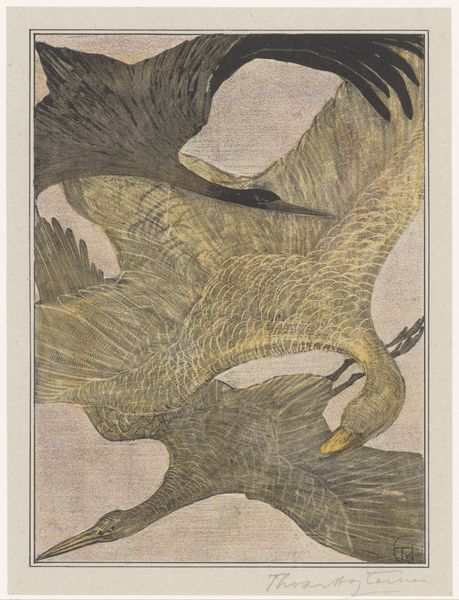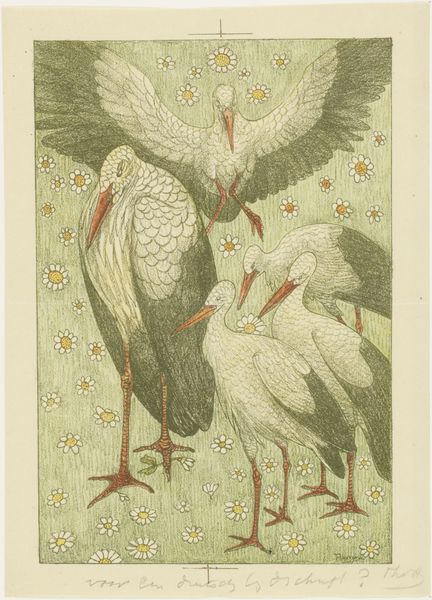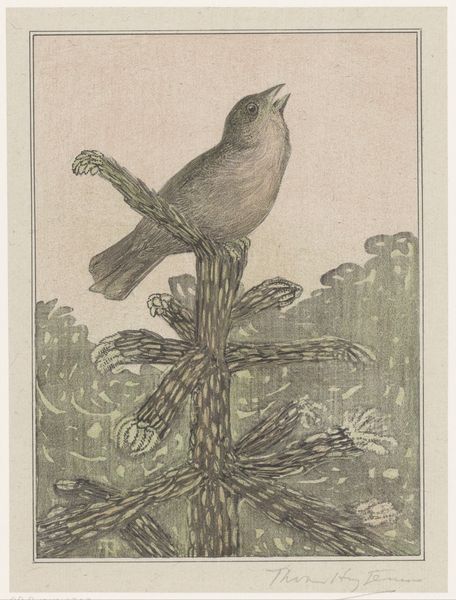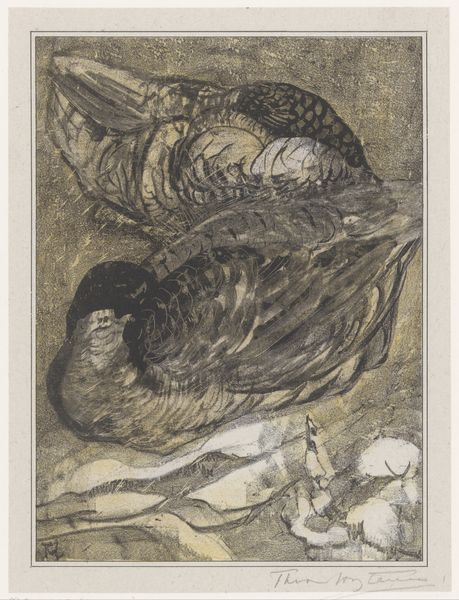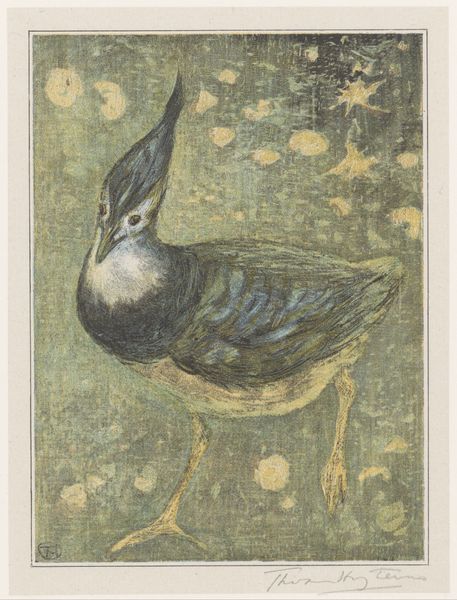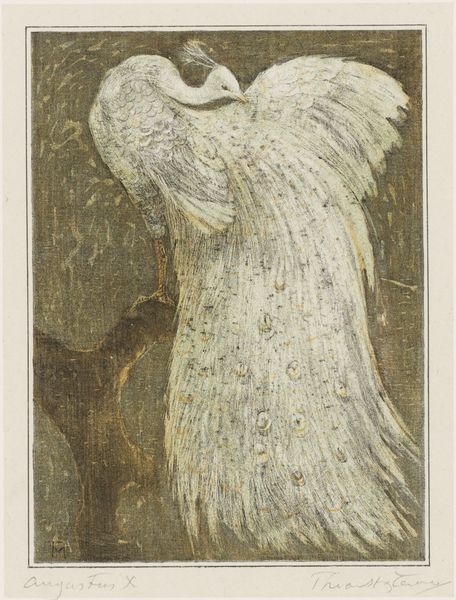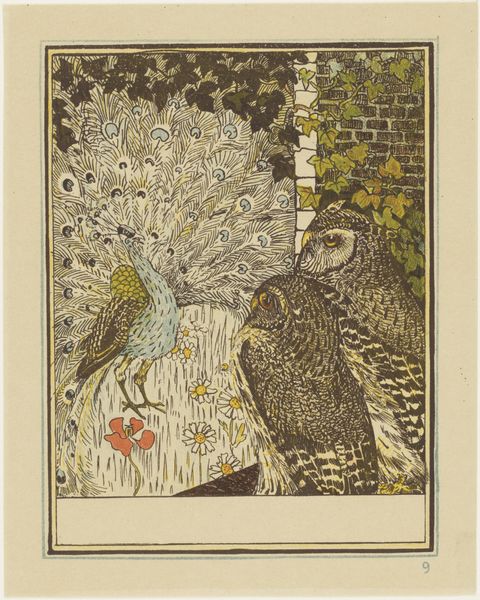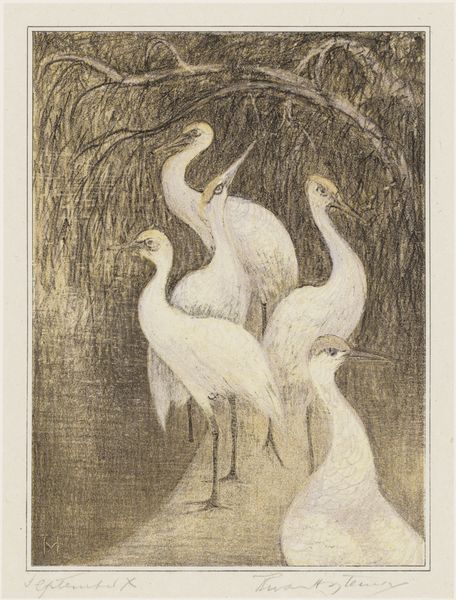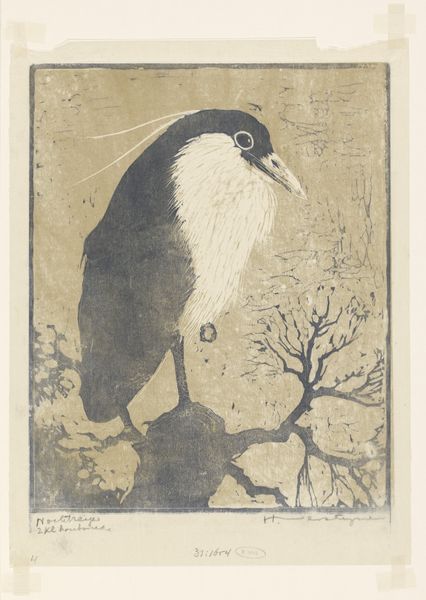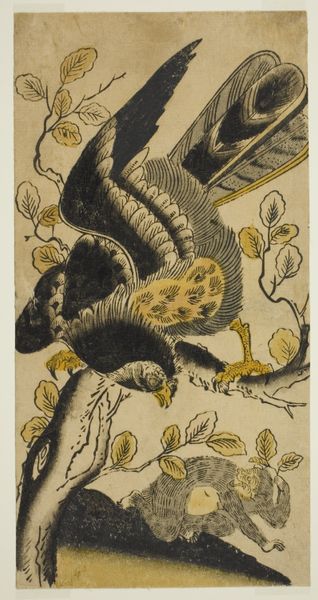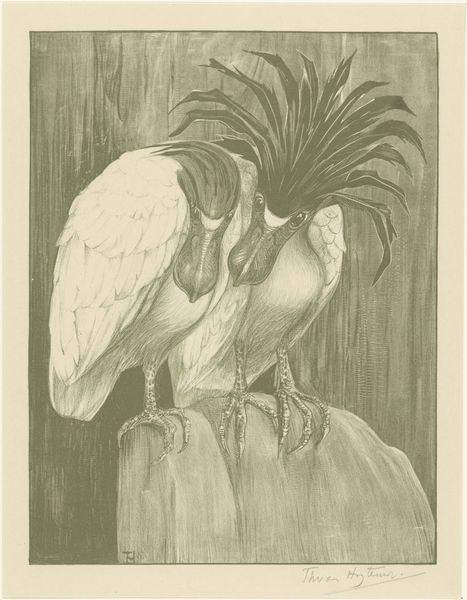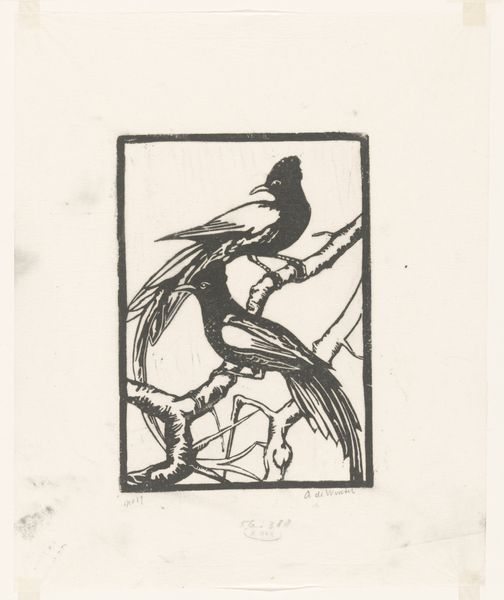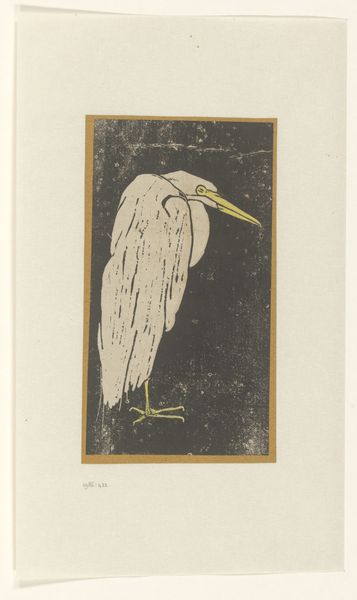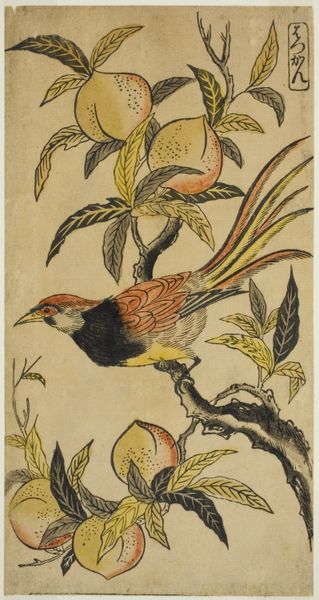
print, watercolor
#
art-nouveau
#
animal
# print
#
landscape
#
watercolor
#
art nouveau
#
watercolour illustration
#
watercolor
Dimensions: height 221 mm, width 169 mm, height 425 mm, width 300 mm
Copyright: Rijks Museum: Open Domain
Theo van Hoytema made this print of two silver pheasants in the Netherlands, though its exact date is unknown. Here, we see two birds whose elegant plumage and posture could be read as a statement about the social order of the time. During Hoytema's era, the Netherlands was experiencing rapid industrialization and urbanization, leading to changing social structures and class distinctions. Images of animals, like these pheasants, often served as symbols of status and wealth, reflecting the values of the bourgeoisie. The controlled environment of zoos and the emerging field of ornithology shaped the way people perceived and classified the natural world. To understand this artwork more deeply, we might turn to period publications on natural history or studies of Dutch social history. By examining these resources, we can begin to interpret the cultural meanings embedded in Hoytema’s work, recognizing that the significance of art is always intertwined with its social and institutional context.
Comments
No comments
Be the first to comment and join the conversation on the ultimate creative platform.
